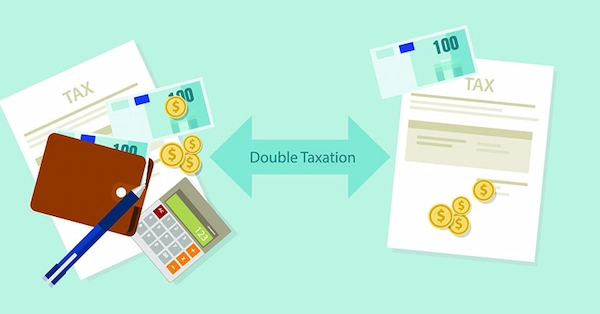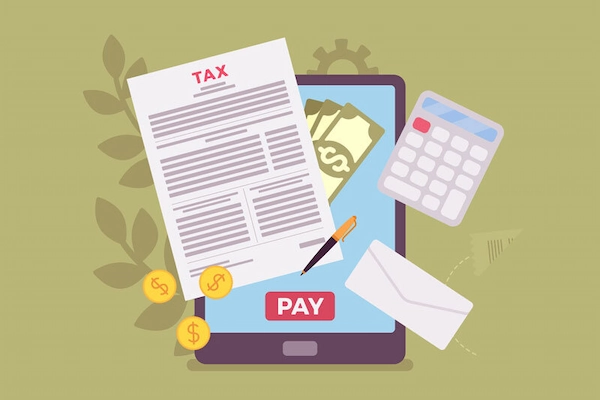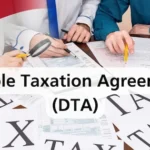Taxation of Cross-Border Employment and Foreign Income in Vietnam
At Jobinvietnam.net, we understand that navigating the complex world of cross-border employment and foreign income taxation in Vietnam can be daunting. Fear not, for we’re here to guide you through the intricacies and ensure you have a clear understanding of your obligations and rights.
Understanding the Basics

When it comes to taxation of cross-border employment and foreign income in Vietnam, there are a few key concepts to grasp:
- Tax Residency: Your tax residency status determines your tax obligations in Vietnam. If you’re considered a tax resident, you’ll be subject to Vietnamese personal income tax (PIT) on your worldwide income.
- Double Taxation Agreements (DTAs): Vietnam has signed DTAs with numerous countries to prevent double taxation. These agreements outline which country has the right to tax your income and provide relief from double taxation.
- Foreign Contractor Tax (FCT): If you’re a foreign contractor providing services in Vietnam, you may be subject to FCT, which is a combination of value-added tax (VAT) and corporate income tax (CIT).
Tax Residency in Vietnam
So, how do you determine your tax residency in Vietnam? It’s simple:
- If you’re present in Vietnam for 183 days or more within a 12-month period, you’re considered a tax resident.
- If you have a permanent residence in Vietnam and are unable to prove tax residency in another country, you’re also deemed a tax resident.
As a tax resident, you’ll be taxed on your worldwide income at progressive rates ranging from 5% to 35%. Don’t worry; we’ll delve into the nitty-gritty of tax rates and calculations later on.
Double Taxation Agreements
Vietnam has a network of DTAs with over 70 countries, including major economies like the United States, the United Kingdom, and Australia. These agreements are designed to prevent double taxation and provide clarity on which country has the right to tax your income.
Let’s say you’re a UK resident working in Vietnam. Under the Vietnam-UK DTA, you may be exempt from Vietnamese PIT if you meet certain conditions, such as:
- Your presence in Vietnam does not exceed 183 days in a 12-month period.
- Your salary is paid by a non-Vietnamese employer.
- Your salary is not borne by a permanent establishment of the employer in Vietnam.
It’s crucial to understand the specific provisions of the DTA between Vietnam and your home country to determine your tax obligations accurately.
Foreign Contractor Tax
If you’re a foreign contractor providing services in Vietnam, you may be subject to FCT. FCT is a combination of VAT and CIT, and the rates vary depending on the nature of your services:
| Service Type | VAT Rate | CIT Rate | Effective FCT Rate |
| Services | 5% | 5% | 10% |
| Royalties | N/A | 10% | 10% |
| Interest | N/A | 5% | 5% |
To minimize your FCT liability, consider structuring your contracts and invoicing carefully. Our experts at Jobinvietnam.net can provide tailored advice to optimize your tax position.
Compliance and Reporting

Complying with Vietnamese tax regulations is essential to avoid penalties and legal issues. Here are some key compliance and reporting requirements:
- Tax Registration: If you’re a tax resident or a foreign contractor, you must register with the Vietnamese tax authorities and obtain a tax code.
- Tax Returns: Tax residents must file annual PIT returns, while foreign contractors must file quarterly FCT returns.
- Tax Payments: PIT is paid monthly or quarterly, depending on your income level, while FCT is paid quarterly.
At Jobinvietnam.net, we can assist you with tax registration, return preparation, and payment to ensure full compliance with Vietnamese regulations.
Tax Audits and Dispute Resolution in Vietnam

In Vietnam, tax audits are conducted by the General Department of Taxation (GDT) to ensure compliance with tax laws and regulations. The GDT may conduct a tax audit on a regular basis or based on specific criteria, such as:
- High-risk industries or sectors
- Significant discrepancies between declared income and actual income
- Failure to comply with tax filing and payment obligations
If you find yourself subject to a tax audit or involved in a tax dispute, it’s essential to seek professional advice and representation. Our team at Jobinvietnam.net has extensive experience in handling tax audits and disputes in Vietnam. We can help you navigate the process, protect your rights, and achieve a favorable outcome.
To learn more about tax audits and dispute resolution in Vietnam. Click here to read more about: Tax Audits and Dispute Resolution in Vietnam
Get Expert Assistance from Jobinvietnam.net
Navigating the complexities of cross-border employment and foreign income taxation in Vietnam can be overwhelming, but you don’t have to go it alone. Our knowledgeable team at Jobinvietnam.net is here to provide the guidance and support you need.
Contact us today via phone, Zalo, or WhatsApp to schedule a consultation with one of our tax experts. We’ll work with you to understand your unique situation, optimize your tax position, and ensure full compliance with Vietnamese regulations.
Don’t let tax concerns hold you back from pursuing your career goals in Vietnam. Trust Jobinvietnam.net to be your partner in success.



Vietnam's Double Taxation Agreements: Benefits for Foreign Workers